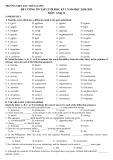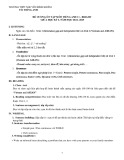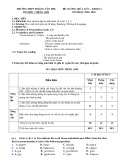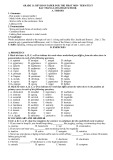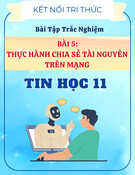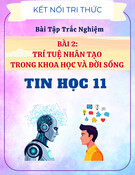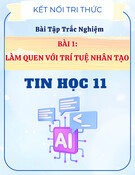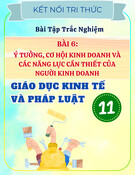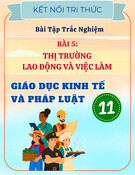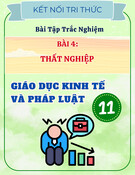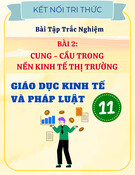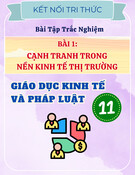
A. PHONETICS
I. Choose the word whose underlined part is pronounced differently from that of the others in each
group.
1. A. comfort B. hobby C. knowledge D. popular
2. A. about B. announce C. cough D. shout
3. A. hood B. hook C. stood D. tool
4. A. done B. gone C. mum D. won
5. A. coup B. group C. soup D. tough
6. A. filled B. landed C. suited D. wicked
7. A. cloth B. clothe C. with D. without
8. A. cease B. chase C. increase D. raise
9. A. beds B. doors C. students D. plays
10. A. gypsy B. huge C. piggy D. strange
II. Pick out the words whose main stressed syllable is different from the rest.
1. A. silent B. children C. village D. advice
2. A. important B. performance C. silently D. permission
3. A. efficient B. flowery C. flourishing D. gramophone
4. A. inhabitant B. initiate C. engineering D. ingenious
5. A. content B. advice C. promise D. admire
II1. Put the given words into the right group.
visual deaf donate launch campaign
blind dumb disabled talent cognitive impairments
Disabilities
Others
IV. Choose the suitable word to complete the sentence.
1. Last week we interviewed some volunteers who had worked with disabled/disabilities students.
2. There are more devices to enable people with impairments/physical disabilities to travel around.
3. These are students with various visual, hearing/deaf, physical and cognitive impairments.
81,7&$5,1*)257+26(,11(('

4. We need to help disabled students to become independent and integrate/launch in the community.
5. The students in our class have charity/donated more than 50 gifts.
V. Complete the sentences using the given words.
impairments voluntary visual volunteers support
1. People with physical ________________________________ have difficulty climbing stairs.
2. This special school helps students with _________________________ impairments to learn Braille.
3. Many _________________________ have taken part in our programmes since the campaign was
launched.
4. We have launched various services to __________________________ people with learning disabilities.
5. We completed a ________________________ project for our community center a month ago.
VI. Fill in each gap with the past simple or the present perfect form of the given word(s).
1. Last night I (lose) __________________________ my keys. I had to call my flatmate to let me in.
2. I (lose) __________________________ my keys. Can you help me look for them?
3. He (live) _____________________ with his great grandmother for a few years - she died when he was
eight.
4. She and her best friends (know) ___________________________ each other for over fifteen years. They
still get together once a week.
5. A: What's wrong?
B: I (break) __________________________ a glass.
6. She (be) __________________________ a teacher for ten years, and she still enjoys it.
7. How many times (she/ go) __________________________ to the cinema last month?
8. Aunt to Jonny: Jonny, I can't believe how much you've changed since the last time I saw you. You
(grow) __________________________ at least a foot!
9. A: How long (you/ live) __________________________ in Paris?
B: Twenty years. We came back to live in England in 2010.
10. A: How long (you/ live) __________________________ in Japan?
B: Four years. And we really like it here.
VII. Complete the second sentence so that it has the same meaning as the first one.
1. The company last won a trophy 20 years ago.
The company hasn't won a trophy
________________________________________________________
2. The club has been successful for three years.

The club started to be successful
_________________________________________________________
3. The team last won a home game in September.
The team hasn't won a home game
_______________________________________________________
4. Peter hasn't scored a goal for 2 months.
Peter last scored a goal
_________________________________________________________________
5. The club started to play in this stadium in 2010.
The club has played in this stadium
_______________________________________________________
6. She became the marketing manager 4 months ago.
She has been the marketing manager
______________________________________________________
7. Lien last visited a centre for children with cognitive impairments two weeks ago.
Lien hasn't visited a centre for children with cognitive impairments
_____________________________
8. His sister got injured three weeks ago, and she's still in hospital now.
His sister has been injured
______________________________________________________________
VIII. Choose the suitable word to complete each sentence.
1. Last year I volunteered to teach at a school for people with hearing impairments and launched/have
launched a campaign to help them.
2. A: How many times did you try/have you tried to pass your driving test?
B: Three times so far.
3. A: I can't send my e-mails because my computer's broken.
B: How long was your computer/has your computer been broken?
A: About a week. I'm going to take it back to the shop when I have time.
4. A: I went to Japan on holiday last year.
B: How long were you/have you been there?
A: Only two weeks. It wasn't really long enough to see everything.
5. A: When did he arrive/has he arrived?
B: He arrived at 2 o'clock.

6. A: Why don't you want to play football with us this weekend?
B: I broke/have broken my leg.
7. A: I never drank/have never drunk whiskey.
B: Have some now.
8. My best friend, Linh went to Canana two years ago, but I wasn't/haven't been there so far.
IX. Decide whether the underlined parts in the following sentences are Correct or Incorrect in terms
of grammar.
1. When I turned on the radio yesterday, I heard a song that was popular when I was in high school.
A. Correct B. Incorrect
2. Ben has had a beautiful house near the beach for more than 20 years, but he sold it about five years ago.
A. Correct B. Incorrect
3. The US president has visited our country three times in the last two years.
A. Correct B. Incorrect
4. Look! There is so much food left. Nobody has eaten anything.
A. Correct B. Incorrect
5. We had a nice honeymoon in Budapest a few days ago but the journey to this beautiful city was
exhausting as we have spent ten hours sitting on the train.
A. Correct B. Incorrect
6. I watched fireworks on New Y ear's Eve twice - once last year and once this year. I hope I can watch it
next year.
A. Correct B. Incorrect
7. How often did you go on holiday when you were a child?
A. Correct B. Incorrect
8. John joined our team as a novice since last summer. Today he's promoted as the leader.
A. Correct B. Incorrect
X. Give the correct forms of the verbs in brackets using simple past or present perfect.
1. The floor looks dirty. I'm sure you (not clean up) ________________________________________.
2. (you/enjoy) ________________________________ the party last night?
3. My bicycle isn't here. I think someone (just take) ________________________________ it.
4. They (know) ________________________________ each other since they were children.
5. They are the most kind-hearted people he (ever meet) ________________________________.
6. He was late yesterday because he (be) ________________________________ stuck in the traffic jam.

7. Last year, he (donate) ________________________________ 99% of his fortune to charitable
organizations.
8. I (be) _________________________________ a member of this non-profit organization since 1996.
9. She (make) ________________________________ many new friends since she joined this English club.
10. Last month I (feel) ________________________________ happy when I cooked a meal for the elderly
at a nursing home.
XI. Put the verbs into the correct tense (simple past or present perfect simple).
1. Mother: I want to prepare dinner. (you/ wash) _________________________________ the dishes yet?
2. Daughter: I (wash) _________________________________ the dishes yesterday, but I (have / not)
_________________________________ the time yet to do it today.
3. Mother: (you/do/yet) _________________________________ your homework _____________?
4. Daughter: No, I (come / just) ___________________________________ home from school.
5. Mother: You (come) _________________________________ home from school two hours ago!
6. Daughter: Well, but my friend Lucy (call) ________________________________ when I (arrive)
________________________________ and I (finish / just) ______________________________ the phone
call.
7. Mother: (you/ see / not) ___________________________________ Lucy at school in the morning?
8. Daughter: Y es, but we (have / not) ________________________________ time to talk then.
XII. Put the verbs into the correct tense (simple past or present perfect simple).
1. I (cycle /just) ________________________________ 50 km.
2. I (cycle) ________________________________ 100 km last week.
3. I (write) _________________________________ an essay yesterday.
4. I (write / already) ________________________________ two essays this term.
5. I (ring/just) ________________________________ my friend.
6. I (ring) ________________________________ my friend 10 minutes ago.
7. Two days ago, I (watch) ________________________________ a Madonna concert on TV.
8. I (see / already) ________________________________ Madonna live in concert.
9. I (spend) ________________________________ my summer holiday in Australia last year.
10. I (be/not) ________________________________ to Australia yet.
XIII. Put the verbs into the correct tense in the following dialogue (simple past or present perfect
simple).
1. A: (you / be / ever) _____________________________ to London?
2. B: Y es, I (be) _____________________________ there three times.

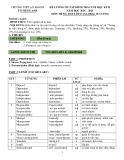
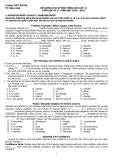
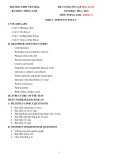
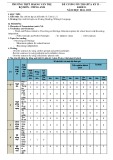
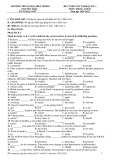
![Đề cương ôn tập học kì 1 Tiếng Anh lớp 11 năm 2024-2025 - Trường THPT Hoàng Văn Thụ Hà Nội [Mới nhất]](https://cdn.tailieu.vn/images/document/thumbnail/2024/20241219/gaupanda066/135x160/2931734603591.jpg)
